“Good Food, Good Life”, our masterplan to repurpose Singapore’s heritage fire station, is envisioned to be a community node that reconnects Human to Human relationship, as well as with Nature through Virtuous Food Cycle. Guiding this is the reignition of the fundamental essence that has united Singapore’s multi-ethnicity during her founding years: Kampung Spirit (“Village” in Malay), which has defined a distinctive way of life that taps on the altruistic side of humanity - Good things are shared, and burdens are carried. This then laid the foundation of Singapore’s urban planning system where common spaces are deliberately planned to foster inclusive communities.
The plan is further informed by UNESCO listed intangible culture - the hawker heritage, a Singapore unique interpretation of community-led placemaking that integrates food, as well as the site’s advantageous sitting in the midst of the island-wide connecting nature routes. These set the design parameters of the 4-step “Communi-trail” node that brings focus to educate the cycle of food production and food security through the 4 key pillars: Initiate, Transform, Share, Recover. Its architectural gesture draws on the influence of the community to organically enhance Singapore’s multicultural vibrancy in year-long curated outdoor spaces of the tropical country. This initiative supports the overall Nation’s movement towards securing food to cope with land scarcity.
An adaptive reuse strategy is adopted for the site to ensure minimal interventions that alter its historic value. This enables the local heritage compound to resume dialogue together with The People. Additions made are done to work with Nature’s process in the tropics. This sustainable method references the circular economy model and is interpreted right down to the tenants’ curation list, making “Good Food, Good Life” the first-ever Singapore public compound to adopt such an innovative and holistic approach in heritage conservation.
In the same vein as the Triennale's aim of exploring 3rd places, “Good Food, Good Life” is an expansive multi-disciplinary collaborative effort, grounded by context and design consciously with Nature to optimize every square meter for an inclusive environment. It will reopen to once again, serve the community, but as a common 3rd place to understand the integrated relationship of People, Planet and Place through Sustainable Food and closed loops.
Our ongoing adaptive reuse project roots in Singapore, a country whose humble fishing village origins saw every tongue and colour depend on one another to transform into its first-world status. With only people as its form of natural resource, our project references the founding essence: “Kampung Spirit” (Village in Malay) to emphasize how essential people-led placemaking can propel a country’s collective movement to shape desirable outcomes. The adoption of Nature’s no waste process has allowed us to innovate “Good Food, Good Life”’s circular programming to one that educates, empowers, and sustains through realigning the symbiotic relationships Human has with one another, and with Nature through Food that binds us all.
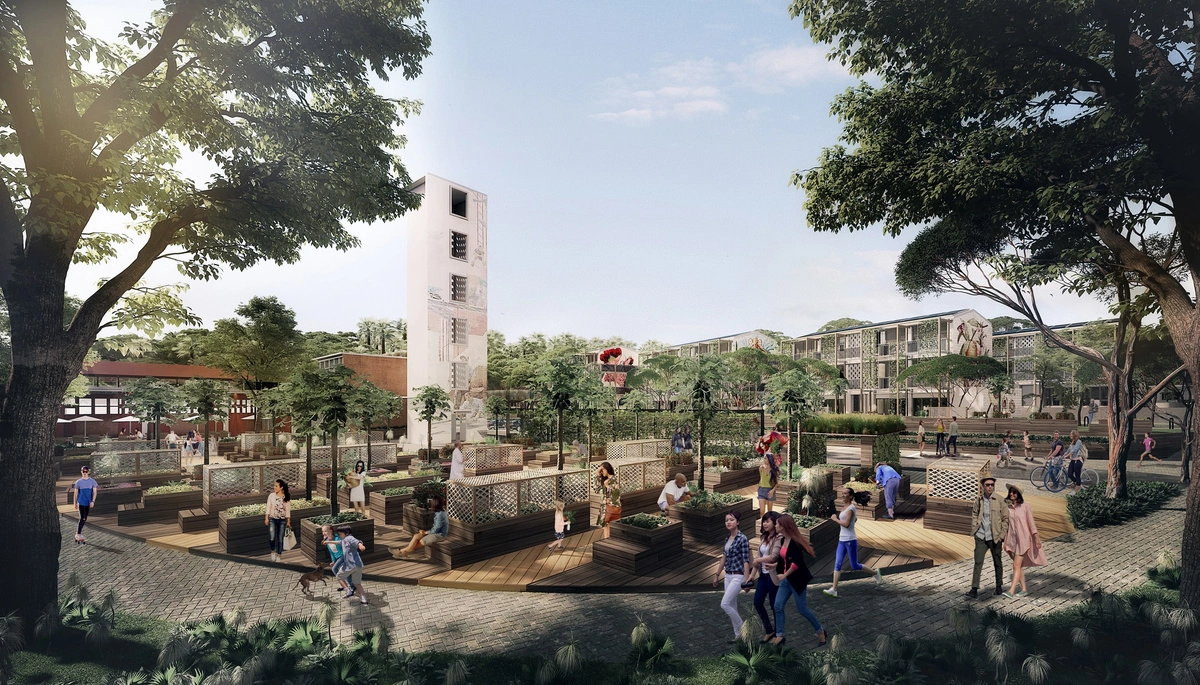
The "Communi-trail" will bring focus to the education of food production and food security through the 4 key pillars: Inititate, Transform, Share, Recover. It references Singapore's founding essence: "Kampung Spirit" to reconnect Human and Human relationships, and with Nature to foster inclusive communities.
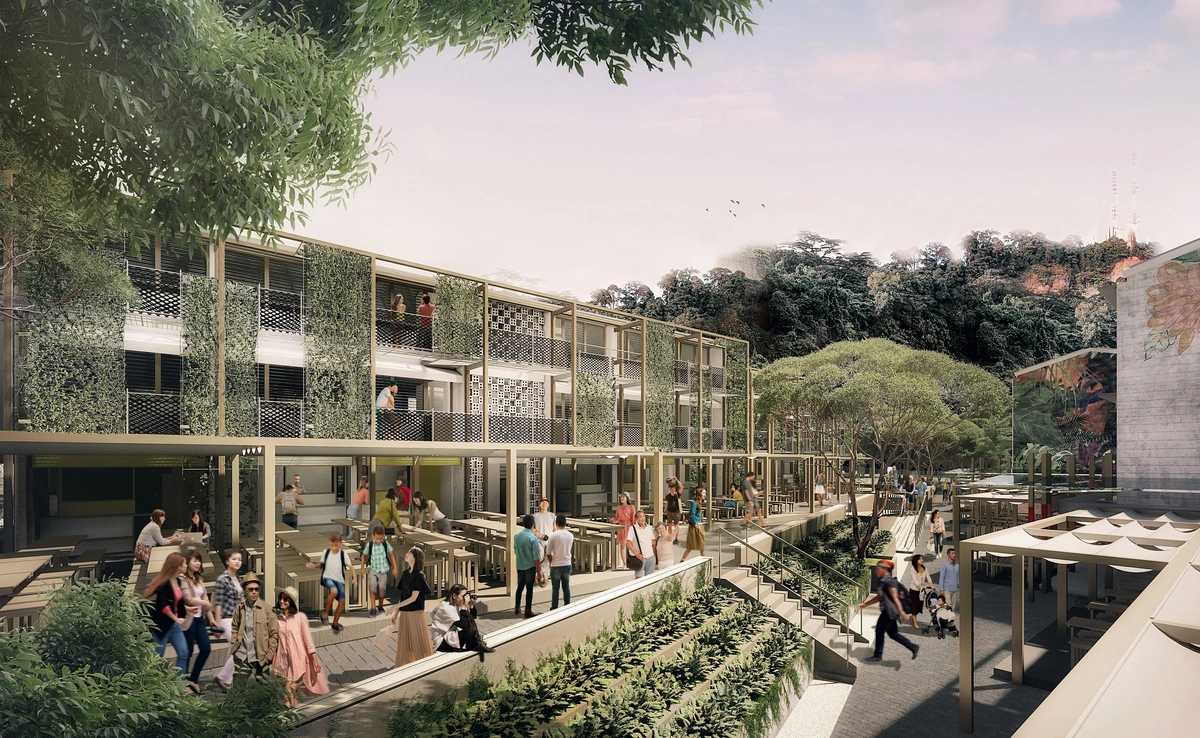
Healthy Food Street - A homage to Singapore's unique hawker heritage that exemplifies community-led placemaking. This identity is also a UNESCO listed intangible culture
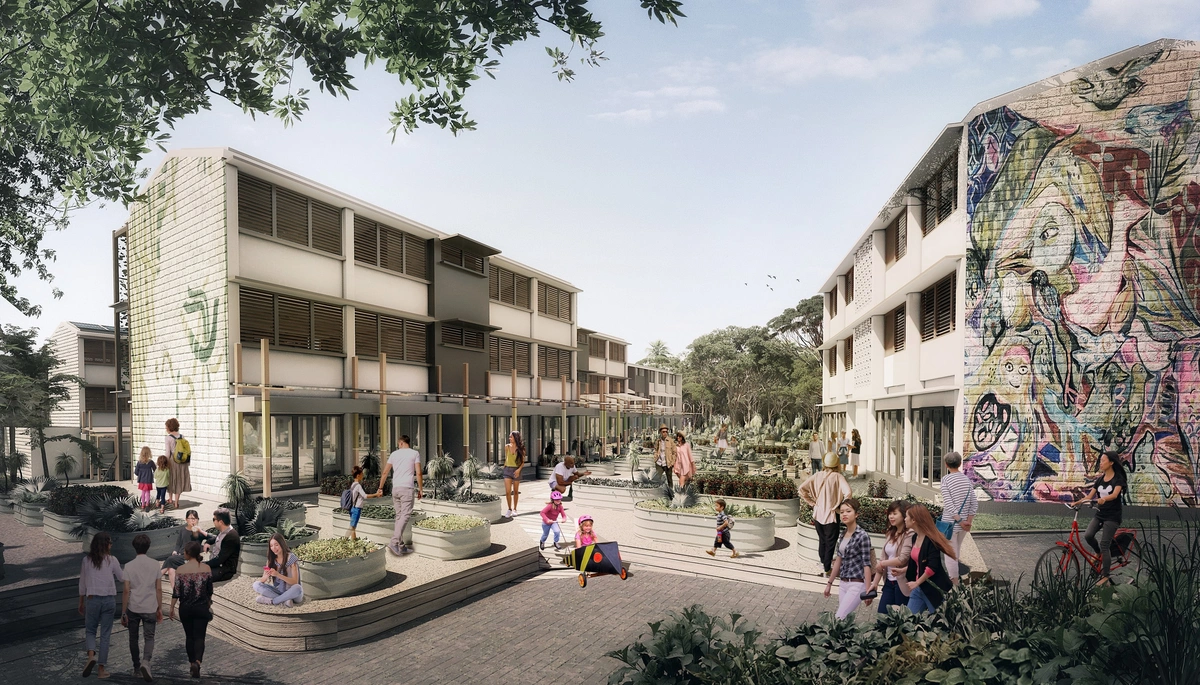
Green outdoor spaces in connection with Nature for tenants to contribute to the overall circular economy and sustainability agenda of "Good Food, Good Life".
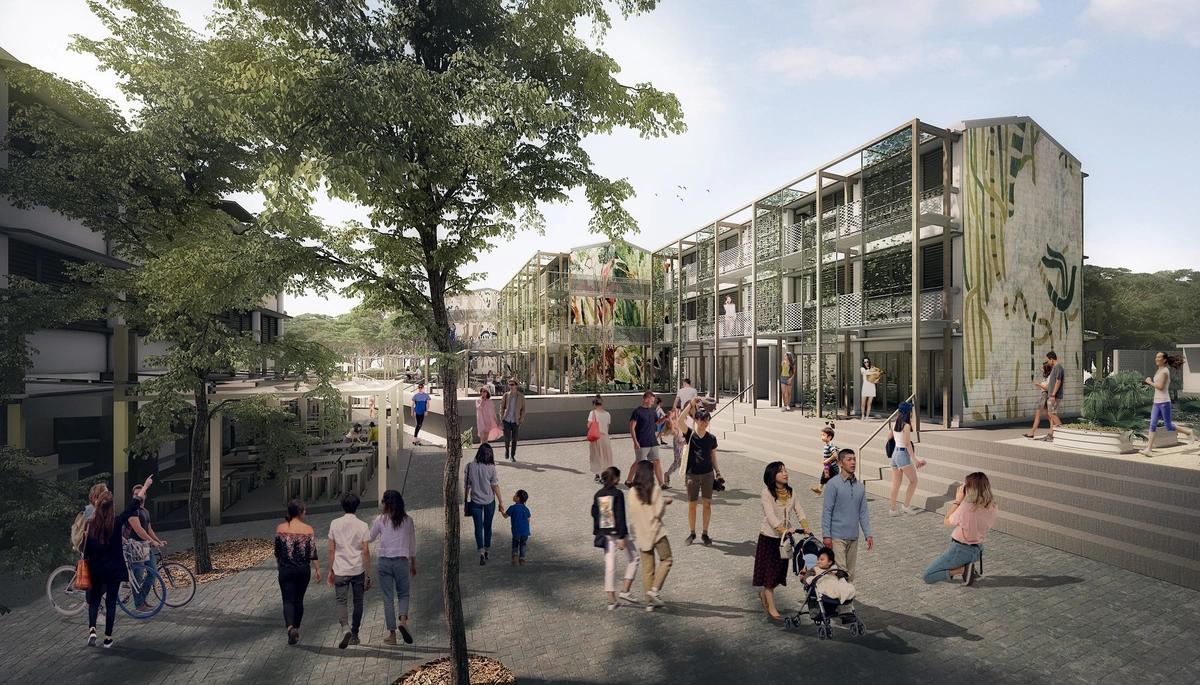
Year-long tropical outdoor curated spaces for inclusive events that enhance Singapore's multicultural vibrancy in the rejuvenated heritage fire station.
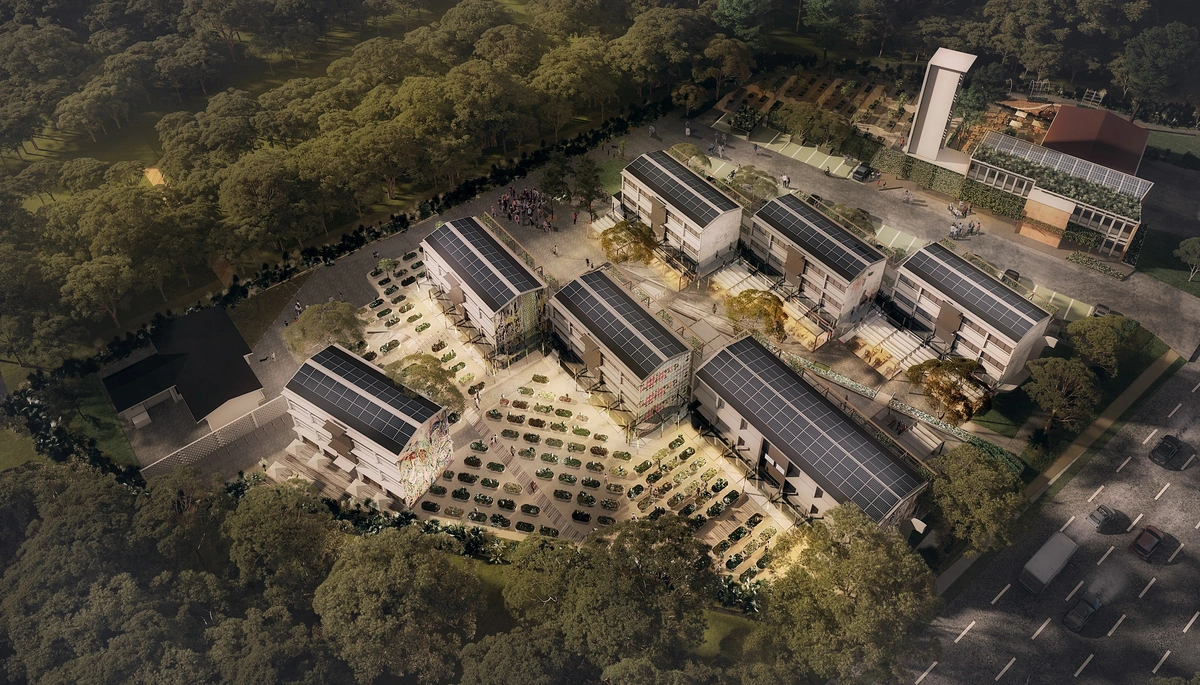
As the first-ever Singapore public compound to adopt a circular approach in heritage conservation, “Good Food, Good Life” is an expansive multi-disciplinary collaborative effort, grounded by context and design consciously with Nature. The former fire station will reopen to once again, serve the community as a common 3rd place to understand the integrated relationship of People, Planet and Place through Sustainable Food and closed loops.
Guided by our philosophy, “Design with A Cause”, WY-TO Group goes beyond to create valued experiences through urban landscapes, visual communication, exhibition spaces, cultural curation and heritage conservation.
The fundamental basis to consciously design for The People and The Planet has propelled our full-service endeavours and inspired our Partners all over Europe and Asia. We design, innovate and pioneer solutions with the vision to influence behaviour and build an inclusive atmosphere for a resilient future.
We believe that only by grounding inventive approaches together with humanity and responsible use of resources can solutions be made relevant in existing habitats.
“Good Food, Good Life” is made possible with the assistance of various home-based collaborators and partners from Engineers, Surveyors, Landscape Architects, Conservation Specialists, Placemakers and Foodscape designers.
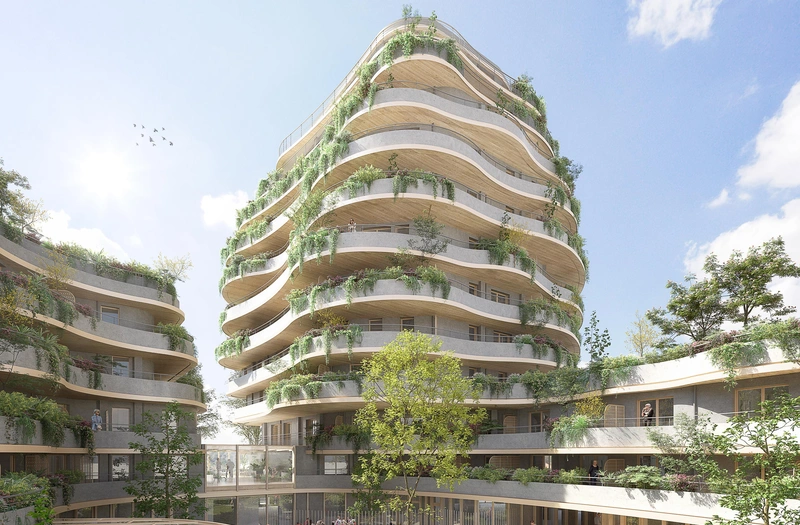
Winning project of "Imagine Angers", Arborescence's unique architectural identity pays tribute to Angers' historical heritage. This inter-generational mixed-use development’s holistic programming is the result of the union of international influences synthesized into the local urban and social context of Angers. It merges the vibrant urban centre with the natural landscape to provide convenience for its array of inhabitants and nurturing opportunities for cross-generational interactions.
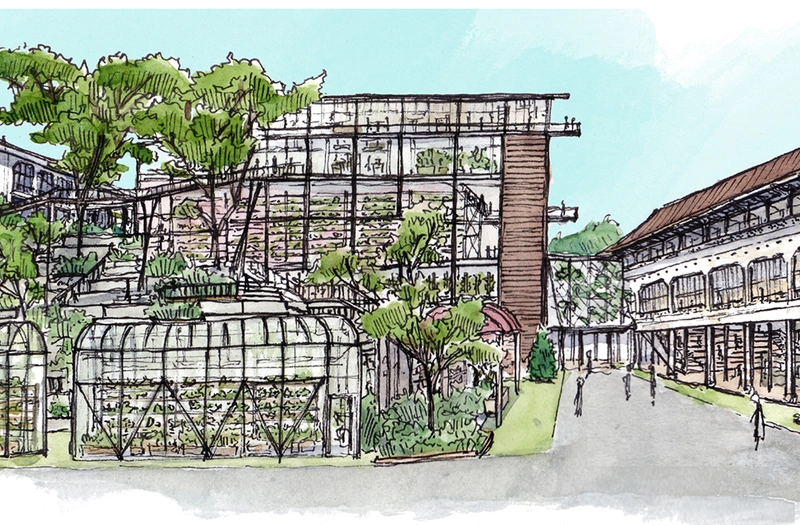
The Stride@Changi is our pilot plan that is guided by the Ecological Transition principles to breathe life back into a retired old hospital in Singapore. This adaptive reuse project is strategized through the set-up of circular systems and proposed to become an urban eco-centre testbed for various distinct functions that will serve the evolved community’s needs through education, work and play.
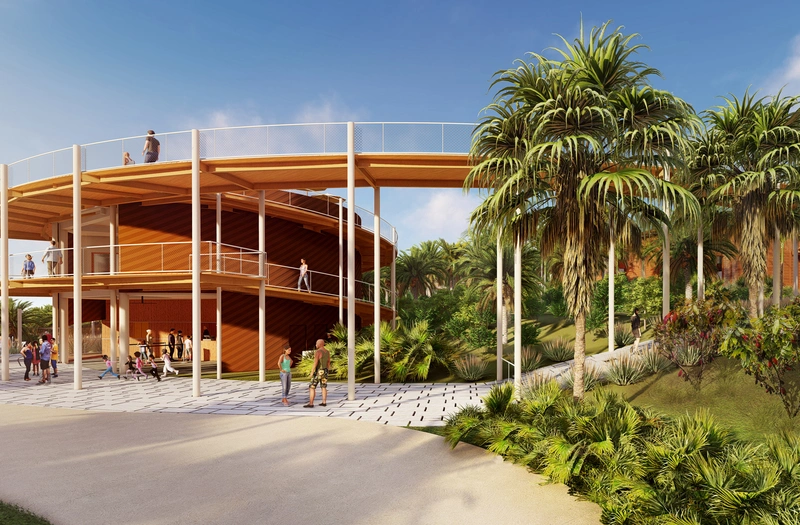
Tropical Eco-Museum is a sweet destination that transforms and inspires new local culture and innovations. It is designed to be accessible to the public while creating jobs for the local community. The plan integrates surrounding landscapes to form visual connections that bring the people closer to nature through deeper relations with the local context.
